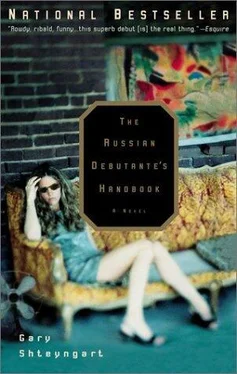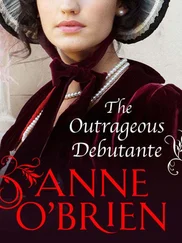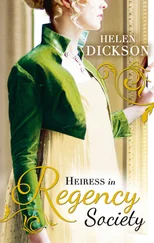Gary Shteyngart - The Russian Debutante's Handbook
Здесь есть возможность читать онлайн «Gary Shteyngart - The Russian Debutante's Handbook» весь текст электронной книги совершенно бесплатно (целиком полную версию без сокращений). В некоторых случаях можно слушать аудио, скачать через торрент в формате fb2 и присутствует краткое содержание. Город: New York, Год выпуска: 2003, ISBN: 2003, Издательство: Riverhead Books, Жанр: Современная проза, Юмористическая проза, на английском языке. Описание произведения, (предисловие) а так же отзывы посетителей доступны на портале библиотеки ЛибКат.
- Название:The Russian Debutante's Handbook
- Автор:
- Издательство:Riverhead Books
- Жанр:
- Год:2003
- Город:New York
- ISBN:0-7865-4177-6
- Рейтинг книги:4 / 5. Голосов: 1
-
Избранное:Добавить в избранное
- Отзывы:
-
Ваша оценка:
- 80
- 1
- 2
- 3
- 4
- 5
The Russian Debutante's Handbook: краткое содержание, описание и аннотация
Предлагаем к чтению аннотацию, описание, краткое содержание или предисловие (зависит от того, что написал сам автор книги «The Russian Debutante's Handbook»). Если вы не нашли необходимую информацию о книге — напишите в комментариях, мы постараемся отыскать её.
and
. The Russian Debutante’s Handbook Bursting with wit, humor, and rare insight,
is both a highly imaginative romp and a serious exploration of what it means to be an immigrant in America.
The Russian Debutante's Handbook — читать онлайн бесплатно полную книгу (весь текст) целиком
Ниже представлен текст книги, разбитый по страницам. Система сохранения места последней прочитанной страницы, позволяет с удобством читать онлайн бесплатно книгу «The Russian Debutante's Handbook», без необходимости каждый раз заново искать на чём Вы остановились. Поставьте закладку, и сможете в любой момент перейти на страницу, на которой закончили чтение.
Интервал:
Закладка:
It was a festive atmosphere: the handsome men and women milled about, playing with the balloons, arguing over coffee brands and whether moving to Queens was a viable alternative to a social life.
“What each of them wouldn’t do to get into Laszlo’s bunk,” Roberta said, while keeping one clammy hand upon Vladimir’s. She wore a manly herringbone suit and a transparent white shirt over a black bra of elaborate construction which brought out and augmented her meager bosom. Her hair had been tied back with little ribbons of silk, and her gaunt cheeks rouged. There was no mistaking her for a sixteen-year-old unless she opened her mouth and exposed her ironwork. “I,” she announced to Vladimir, pointing at her name tag, “am Katerina Nieholtz-Praga, scion of an old Austrian family, and wife of the Italian industrialist Alberto Praga. Al is getting his citizenship today, but purely for business purposes, you understand. His heart is still in Tuscany, with his olive farm, his two Arabians, and his mamma.”
“God help us all,” Vladimir said. He sat, stooped and unshaven, in a huge sports jacket Roberta had brought for the occasion. He had tried shaving in the bathroom of his room in the squalid Astoria motor lodge, which he had procured with his remaining fifty dollars, but found that he couldn’t keep his hands steady or his face still.
Laszlo walked out from the dressing room. He was a spindly gentleman, wearing a judge’s robe that barely reached down to his thighs, a sort of judicial miniskirt. Wisps of uncombed gray hair jutted out from his head in the shape of a lopsided crown. “Are you the client?” he asked Vladimir in remarkably clear English. He must have spent years scouring his Hungarian accent with steel wool. He probably couldn’t pronounce “paprika” at this point.
“That’s me,” Vladimir said. “How’s our man doing?”
“He’s real good, one hundred percent okay. Right now he’s in the dressing room, getting to know the other, you know, the citizens.” Laszlo folded his frame down to Vladimir’s level and put both hands on his shoulders; Vladimir flinched from recent experience.
“So,” Laszlo said, “this is our standard False Naturalization Ceremony Event, or FNCE, as we say in our industry. We do maybe a couple such events per year, and also a couple deluxe packages, which is the same thing but on a boat and with hookers.” And here Laszlo blinked, curling one tremendous brow. Roberta winked, too, and Vladimir, feeling the pressure, followed suit with a series of rapid blinking.
“Roberta said I can wire you the three thousand from Prava,” Vladimir spoke up.
“Yes, plus the FNCE standard package specialized one hundred percent lateness handling charge of an additional U.S. three thousand dollars. As per agreement!”
“I see,” Vladimir said. “Six thousand dollars.” The Hungarians were adapting to the free market quite nicely. He woud have to borrow some cash from Mr. Rybakov’s son. Still, it was nice of Roberta to fix this up on such short notice.
“Right,” Laszlo said. “Guests, assume your positions!”
The crowd of faux Zimbabweans, Ecuadorians, and the like scrambled over their folding chairs, brushing against one another and giggling. Laszlo climbed up the makeshift stage to his lectern, which was actually composed of several cardboard boxes expertly covered by an American flag and outfitted with a portable microphone. A colorful seal reading “Department of Justis” hung in the background, another excellent approximation, except for that slight misspelling and the somewhat frightened expression in the eye of the American eagle. “And now let us welcome the candidates for na-tu-ra-li-zation!” Laszlo boomed.
Applause from the guest sector as the candidates filed in one by one: Jewish and Anglo women in dark makeup and bizarrely overdone headdresses of grapes and mint leaves; men with wavy, blond hair and perfectly suburban physiognomies dressed as if they had just escaped from the set of The Man of La Mancha, and other such apparitions.
Mr. Rybakov hobbled in. He wore a dark blue suit, double-breasted and carefully tailored to minimize his paunch. Rows of red-and-yellow Soviet medals covered a great portion of his breasts, yet his tie sported the Stars and Stripes to accentuate his change of allegiance. He smiled inwardly, looking at the floor, trying to follow the footsteps of the kimono-clad woman in front of him.
Vladimir couldn’t help himself. Upon seeing the Fan Man he sprang to his feet and clapped the loudest, shouting with a Russian cheer, “Ura! Ura, Aleksander!” Roberta pulled on his jacket, reminding him that the point was not to get Rybakov riled up, but all the sailor did was smile meekly to acknowledge his friend, then took his seat beneath a giant crepe banner that read CONGRATULATIONS, NEW AMERICANS. They had parked him between the Italian industrialist Alberto Praga and another Caucasian-looking individual in order to avoid the previous incident with the Arab. However, in front of him sat a “Ghanaian” woman bearing a giant straw basket of fruits on her head, likely obscuring part of his view. That had been an oversight.
They sang the anthem, then Judge Laszlo rose and brushed his hand against his eyes, deeply affected by this particular rendition. “America!” Laszlo said and nodded with understanding.
“America!” Rybakov shouted from his seat, nodding similarly. He turned around to give Vladimir an upturned thumb.
Laszlo smiled at the Fan Man and pressed one finger to his mouth for quiet. “America!” he repeated. “As you can tell from my accent, I too once sat where now you sit. I came as a small child to this country, learned the language, the customs, worked my way through, ah, judge school, and now am most privileged to help you complete your long journey to American citizenship.”
There was spontaneous applause during which the Fan Man got up and shouted: “I come to Vienna first, then I go to America!”
Laszlo waved at him to sit down. He put his finger to his lips once again. “What is America?” he resumed, spreading his shoulders, looking up to the stained ceiling in wonderment. “Is it a hamburger? Is it a hot dog? Is it a shiny new Cadillac with a pretty young woman underneath a palm tree…?”
The guests shrugged and looked at each other. So many choices.
“Yes, America is all this,” Laszlo explained. “But it is more, much more.”
“I collect Social Security,” announced Mr. Rybakov, waving a hand for recognition.
Laszlo ignored him this time. “America,” he continued, both robed arms swinging through the air, “is a land where you can live a very long life and when it is time to die, when you look at yourself, you can say definitely: all the mistakes, all the triumphs I have had, all the Cadillacs and the pretty women, and the children that hate me so much they call me by my first name and not ‘daddy’ and not even ‘father,’ this is all because of me. Me!”
Laszlo’s students agreed, vigorously doffing their sombreros and waving around their kente cloth, repeating among themselves, “Me! Me!”
“This part of the Stanislavsky Method I don’t quite recognize,” Vladimir said.
“Ignoramus,” Roberta said.
The oath of allegiance was administered, the Fan Man mumbling right along, careful not to turn on his fellow candidates during the “all enemies, foreign and domestic” bit. Finally, they were called upon to get their certificates: “Efrat Elonsky… Jenny Woo… Abdul Kamus… Ruhalla Khomeni… Phuong Min… Aleksander Rybakov…”
Rybakov went up to the podium, dropped his crutches, and draped his arms around Laszlo who nearly buckled under the weight. “Thank you, Mister,” he whispered in his ear. He turned to Vladimir and waved his certificate through the air, his eyes streaming. “Ura!” he shouted. “Ura to America! I am America!” Vladimir waved back and took a snapshot with the Fan Man’s Polaroid. Despite the Ghanaian woman distributing ceremonial fruits from the basket on her head, despite Roberta loudly smooching the dapper Alberto Praga, yes, despite it all, Vladimir found himself moved. He blew his nose into the coarse, acrylic handkerchief that came with Roberta’s sports jacket and waved his little American flag made of a similar fabric.
Читать дальшеИнтервал:
Закладка:
Похожие книги на «The Russian Debutante's Handbook»
Представляем Вашему вниманию похожие книги на «The Russian Debutante's Handbook» списком для выбора. Мы отобрали схожую по названию и смыслу литературу в надежде предоставить читателям больше вариантов отыскать новые, интересные, ещё непрочитанные произведения.
Обсуждение, отзывы о книге «The Russian Debutante's Handbook» и просто собственные мнения читателей. Оставьте ваши комментарии, напишите, что Вы думаете о произведении, его смысле или главных героях. Укажите что конкретно понравилось, а что нет, и почему Вы так считаете.












